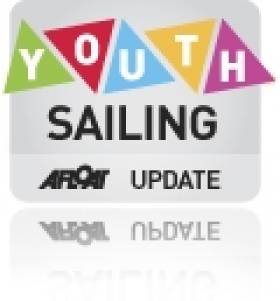Displaying items by tag: Ellen
Ellen MacArthur Cancer Trust Celebrates Busiest Year
But, although surpassing its previous best ever numbers of 250 young people last year, the Trust is already setting its sights on eclipsing the new record-breaking figures in 2012!
The Trust, established by Dame Ellen MacArthur in 2003 to inspire children's recovery from cancer and serious illness, offers opportunities for young people aged eight to 24 to take part in a range of sailing-based activities, including the Trust's traditional four-day Solent sailing trips, longer cruising weeks and week-long outdoor activity residential trips.
The young people are also invited back to take part in other events including the J.P Morgan Asset Management Round the Island Race and given the chance to earn professional qualifications, such as the Royal Yachting Association Competent Crew course, with many returning as volunteers once they turn 18 too.
Having introduced new 18-24 years' specific trips in 2010, 2011 saw the Trust work with 63 young adults from 10 new hospitals (Scotland, London, Cambridge, Cardiff, Birmingham, Manchester, Newcastle, Bristol, Plymouth and Southampton), in addition to the four hospitals (Nottingham, Leicester, Sutton and Leeds) from last year.
Kamal Khalifa, a first time 18-24 years' trip participant from Hendon in North West London, who finished treatment in 2011 for Osteosarcoma, a form of bone cancer said: "The trip was my first time sailing and I was really nervous before the trip, but I'm so glad I went! Everyone was really nice and they do the best to help you. I got to know so many people it was like a little family. The sailing was fun and challenging but the best bit was the evenings when everyone chilled and played games. The team really help to get the most out of the trip for you, even if you have limited movement or if you're tired they will do their best to help."
The Trust also introduced a second residential dinghy trip this year, with 25 eight-17 years olds travelling to Waterpark Lakeland Adventure Centre in the Lake District for 'Northern Dinghy Week'. This trip was launched to give more northern-based young people the chance to do something similar to the Trust's original residential week at Bradwell Outdoor Education Centre in Essex much closer to home.
Waterpark trip attendee Paige Nuttall, who finished treatment for a brain tumour in 2009 said: "After my first trip with the Trust I was really excited about coming back and I was looking forward to everything about the new trip! My first trip made me feel so free and it was really exciting to get back on the water. I have had a fantastic time, met loads of news friends and did things I didn't think I could do."
No fewer than 102 volunteers helped across the 14 trips, with over a quarter of those made up of young people whose first involvement with the Trust came when they themselves were in recovery from cancer or leukaemia.
But Frank Fletcher, Trust Chief Executive Officer, insists despite its 2011 success the Trust will not be resting on its laurels. He said: ""When you see over 300 young people enjoying themselves and gaining so much from the different trips it is almost hard to believe we started as two trips with 15 youngsters. This year we had 51 different crews involved in total!
"None of this would be possible without the unbelievable support we get from our volunteers and the Friends of the Trust. For even more young people to be able to sail with us next year we need our more people to financially support the Trust - a great way to do this is to become a friend of the Trust"
























































